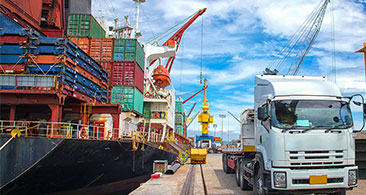At the time of writing, the exit date for Brexit edges ever closer and doubt still remains about what relationship will exist, particularly in matters related to Customs procedures and the workforce of the freight industry.
The Freight Transport Association’s (FTA) Logistics Report 2018 showed that Brexit was the biggest challenge to the international growth of logistics firms, cited by 56.9% of respondents.
However, as a “No Deal” scenario gains ground importers and exporters will be making provision for either scenario. We explore some of the key changes and challenges facing the freight industry below.
Customs and “CHIEF”
Customs have for some time and certainly long before Brexit raised its’ head been working on a replacement for their ageing entry handling system “CHIEF” (Customs Handling of Import & Export Freight).
Now approaching its’ 25th birthday “CHIEF”, written on 80’s software and running on 90’s hardware is expensive to run and difficult to maintain and lacks flexibility.
Obligations under World Customs Organisation & the Union Customs Code require a more flexible and efficient service, and legislation requires technology to be brought in to meet the requirements of modern trade – Secure the Supply Chain against terrorist attack, limit criminal activity and improve revenue collection.
Enter the Customs Declaration Service (CDS)
Deployment of CDS is being staged and began earlier in 2018. It will run alongside CHIEF until rollout is complete and stable but work should be complete by the second half of 2019.
According to the Government’s website, the CDS will “meet the requirements of the Union Customs Code (UCC), support the anticipated future import and export growth of the UK, and provide business with access to more their customs information in one place.”
So what is different? CDS marks a change in Customs culture, from checking goods and conveyances once they’ve arrived in the UK, to one of risk assessment and audit.
The CDS will provide greater visibility of the supply chain from end to end, will communicate with other government departments involved in international trade, and other customs administrations.
It also has a demand for more data and traders will find their forwarders need more information and evidence before they’re able to submit customs entries.
How to prepare for the CDS changes
If they haven’t already, those involved in international trade should by now have had some dialogue with their forwarders and will be preparing.
The guidance released by the Government states that, if a business wishes to submit CDS declarations, they would need to:
- Have an Economic Operator Registration and Identification (EORI) number and a Government Gateway user ID and password
- Understand the different information needed for CDS so you’re compliant with the Union Customs Code and the CDS Trade Tariff
- Provide any training or information needed by your staff, for example on the tariff changes and new data requirements
- Understand any financial or process implications the changes may have including to your Direct Debit payments if you use a duty deferment account
How else will Brexit impact the freight industry?
However, it’s not just the CDS that’s going to have an impact on the freight industry.
As Brexit draws closer, logistics providers have explained that they feel they are going to be restricted by a shortage of essential skilled workers, with 34.7% of study participants saying that restricting freedom of movement from the EU will harm business.
This figure rose from 34.7% to 42.6% for freight organisations that are involved in the manufacturing of goods, whilst 45% of participants said that the availability of skilled British workers was also a concern. Finally, study respondents also anticipated that an inability to fill HGV driver roles would be a key concern when assessing their workforce.
This may mean that there is a greater need to train British workers to replace those that leave after Brexit, or to fill the gap left by more restricted freedom of movement.
It remains to be seen what the impact of Brexit on the freight industry will be, but businesses should start taking steps to minimise the fallout in their own organisations, whilst still preparing for the changes bought about by the CDS.





